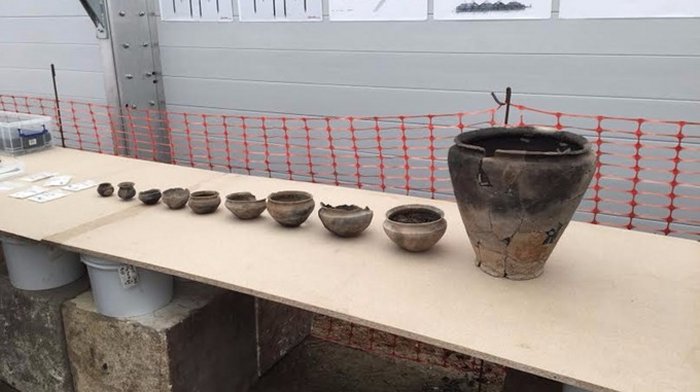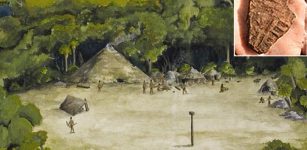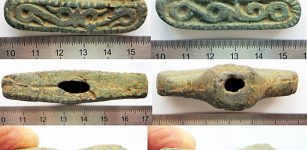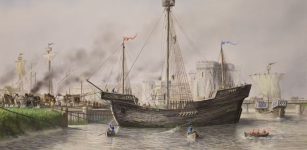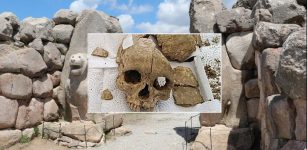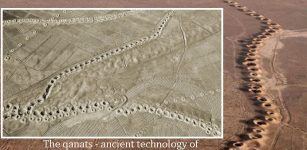The Pompeii Of The Fens: Ancient Village In Cambridgeshire Burned Down 3,000 Years Ago For Unknown Reasons
AncientPages.com - Archaeologists have examined an ancient Cambridgeshire settlement that was only there for a short time before it was engulfed by flames 3,000 years ago. The village has been described as "the Pompeii of the Fens" and it was only a few months when it burnt down for unknown reasons.
These best-preserved Bronze Age dwellings ever found in Britain, which provides an extraordinary insight into domestic life 3,000 years ago.
Dated to the end of the Bronze Age (1200-800 BC), the settlement with large circular wooden houses built on stilts above water, collapsed in a dramatic fire 3,000 years ago and plunged into a river, preserving their contents in astonishing detail.
Based on beads discovered at the site, scientists think the settlers of the Pompeii of the Fens traded with people from other from the Mediterranean or Middle East.
The stilts have still been preserved, 3,000 years down the line. Credit: ITV News Anglia
The timber preservation is excellent at the site and at least five circular houses raised on stilts were found at the settlement, with each having an area for storing meat and another section for cooking or preparing food.
Pottery was discovered at the site. Credit: ITV News Anglia
"Alongside the actual bits of timber, it also preserved direction indicators of where the fire burnt the longest and fiercest which hopefully will give us an indication as to whether it started inside the structures or did it spread across the outside? "Karl Harrison, forensic archaeologist said.
See also: More Archaeology News
Axe heads, swords and pottery were also discovered in the buildings which experts believe gives an unprecedented insight into what life was like in Bronze Age Britain.
AncientPages.com


